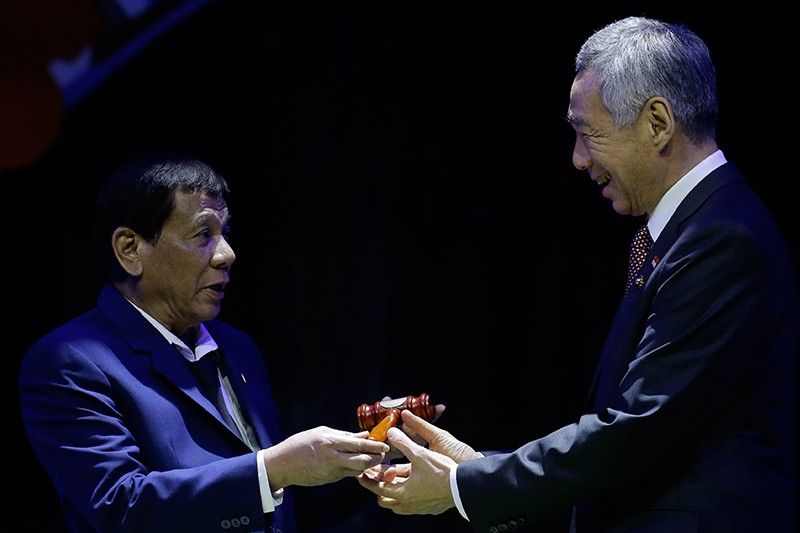ASEAN under Singapore’s chairmanship: Opportunities and challenges ahead

Singapore’s chairmanship of the Association of Southeast Asian Nations this year comes at a particularly critical juncture. The smaller states of Southeast Asia are grappling with an era of uncertainty unprecedented since the end of Cold War, as Beijing begins to challenge the existing regional order while America embraces trade protectionism.
In the upcoming ASEAN summit in later this month, Singapore faces the daunting task of reasserting the regional body’s centrality in shaping regional affairs, cultivating coherence and unity among member states, and fostering an open and stable regional security environment.
Singapore is arguably the best possible member to steer the regional body in these difficult times. It is equipped with one of the most impeccable diplomatic pool of talents anywhere in the world, with a long history of supporting regional integration process, including generous funding of the Initiative for ASEAN Integration.
Singapore is also neutral in key regional disputes, including those in the South China Sea as well as the Mekong River, which threaten to tear the fabric of the ASEAN asunder over coming decades.
Singapore can and should leverage its diplomatic capital to unify the region under a single collective purpose: securing rights of smaller nations against the might of revisionist powers.
As the chairman of the ASEAN, the city-state has significant leeway to correct the mistakes of the past as well as build on the gains of its predecessors.
Some observers tend to overemphasize the importance of the so-called “ASEAN way,” in which the regional body is governed by the orthodoxies of Musyawarah (Consultation) and Muafakat (Consensus) principles.
Without a question, the absence of dominant members and a supranational central bureaucracy, as in the European Union, means that consensus building is often the only game in town.
Yet what’s often forgotten in discussions of the ASEAN is the tremendous amount of power enjoyed by the chairman nation.
First, the ASEAN chairman has the power to shape the annual policy agenda for the region and beyond. Chairmanship isn’t only a ceremonial role but actually gives the rotational chairman the unique power of agenda setting.
Given the limited bandwidth of regional organizations, especially those as understaffed and loose as the ASEAN, it’s highly important what issues are put at the center of multilateral discussions each year. Under the Philippine chairmanship of the ASEAN last year, the country chose to put the fight against transnational crime and terrorism at the heart of the regional agenda.
The second form of power exercised by the ASEAN chairman is the issuance of the Chairman’s Statement, which tends to happen twice a year, during April and November.
In the Statement, the head of state of the host nation has an almost unilateral power to not only highlight issues of his/her concern but also how to frame and present the issues that are deemed to be of paramount interest to the ASEAN and its dialogue partners.
Last year, President Rodrigo Duterte, as chairman of the regional body, chose to emphasize the “non-interference” principle and promote his tough anti-crime agenda in his chairman statements.
Third, the chairman has the power to issue a separate statement when member nations fail to arrive at a consensus over a specific issue. Last year, when member states failed to arrive at a joint communiqué vis-à-vis the Rohingya crisis—with Malaysia as the major dissenter—the Philippine issued a separate Chairman Statement instead.
In the case of Singapore this year, the city-state is also the ASEAN-China country coordinator, putting it in a unique position to arbiter the increasingly fluid and asymmetrical relationship.
Singaporean Prime Minister Lee Hsien Loong has made it clear that his country will put the promotion of a “rules-based” regional order at the center of its chairmanship of the ASEAN this year. This could mean, theoretically, pushing back against China’s revanchist challenge to freedom of navigation and flight, both civilian and military, in the South China Sea.
Singapore will likely push for a legally binding Code of Conduct and reiterate its support for the management and resolution of the disputes in accordance to international law.
Moving forward, Singapore should advocate for a substantial and legally-binding Code of Conduct in the South China Sea, in accordance to the United Nations Convention on the Law of the Sea.
While the Philippines and China have decided to explore a path of rapprochement, the 2016 arbitration award at The Hague should serve as a reference for the management and resolution of the disputes, including proposals for resource-sharing in the area.
After all, the award is relevant to all claimant—and even non-claimant—states and concerned parties, since it nullifies the bulk of China’s excessive and baseless claims across adjacent waters to the detriment of weaker claimants and stability in the broader region.
It will also likely steer the ASEAN toward greater support for a free regional trading regimes, whether through the proposed Transpacific Partnership Agreement 11, which counts Malaysia, Brunei, Singapore and Vietnam as prospective members, as well as the Regional Comprehensive Economic Partnership, which covers 16 regional economies in the Asia-Pacific.
This way, Singapore hopes to encourage the ASEAN to overcome protectionist challenges from the West and revanchist challenges from the East. The city-state is also intent on strengthening regional cooperation against non-traditional security concerns, especially in the realm of transnational terrorism and cyber security.
As for other major security issues, the ASEAN will likely also support the encouraging momentum toward peace in the Korean Peninsula, as Pyongyang’s leadership embarks on a marathon of summits with global leaders. The challenges ahead for the region are daunting, but this year the ASEAN is luckily in very capable and responsible hands.
Richard Javad Heydarian is a non-fellow resident of think thank Stratbase ADR Institute, a partner of Philstar.com.
- Latest

























